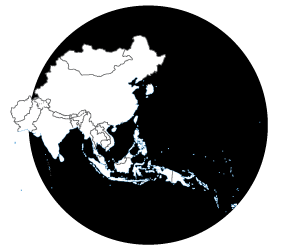We welcome your feedback
Your input matters. Help us improve the CIF website by completing a brief survey. It will only take two minutes and will support our ongoing efforts to serve you better.
This region includes the world’s most populous nation — China — on one end of the spectrum and some of the most sparsely populated countries in the world on the other. Known as small island developing states (SIDS), they include the Marshall Islands, Samoa, and the world’s third-smallest nation — Nauru.
The region is both the most populous and most densely populated region in the world. It is heavily rural, with agriculture being the mainstay of the economy. Demographic trends have been shaped by rapid urbanization and economic development in the region. As such, significant investments in infrastructure are required to keep up with these trends.

The Climate Investment Funds (CIF) are enabling efforts to tackle climate change all across the region through its programs, on multiple fronts:
Bangladesh: CIF’s Pilot Project for Climate Resilience (PPCR) is enabling Bangladesh’s sustainable development objectives as well as strengthening the security of food and fresh water supply, while building the resilience of coastal communities.
Cambodia: CIF’s Pilot Program for Climate Resilience is helping to build institutional capacity through incorporating climate resilience into development plans, while climate-proofing water-management systems, agriculture, and infrastructure. At the same time, its Scaling Up Renewable Energy in Low Income Economies Program is supporting wide-scale solar-energy development and a biomass power project. Cambodia has also developed a roadmap for the sustainable management of forest resources through CIF’s Forest Investment Program (FIP).
India: CIF’s Clean Technology Fund (CTF) investment plan is supporting the development of three gigawatts of new installed solar power capacity, including 800 megawatts of rooftop solar photovoltaics, which aim to reduce greenhouse gas emissions by 25 million tons.
Indonesia: CIF’s Clean Technology Fund (CTF) is enabling Indonesia to advance geothermal development. Concessional financing is facilitating commercial lending that is expected to lead five geothermal projects — targeting to generate a total of 750 megawatts (MW) — to financial closure, thereby setting a benchmark for commercial bank lending. The aims of grants and low-cost financing under FIP are to develop and support community-based sustainable forest management.
Nepal: PPCR is supporting Nepal — the world’s fourth-most climate-threatened country — in tackling multiple threats, alongside significant investments under the Forest Investment Program and the Scaling Up Renewable Energy in Low Income Countries Program.
Vietnam: CTF’s concessional financing is helping to demonstrate the commercial viability of energy efficiency and renewable-energy investments, thereby creating an enabling environment for scaled-up private-sector investment and reducing greenhouse emissions. In Ho Chi Minh City and Hanoi, the same program is supporting enhancements to urban transport systems.
Your input matters. Help us improve the CIF website by completing a brief survey. It will only take two minutes and will support our ongoing efforts to serve you better.
